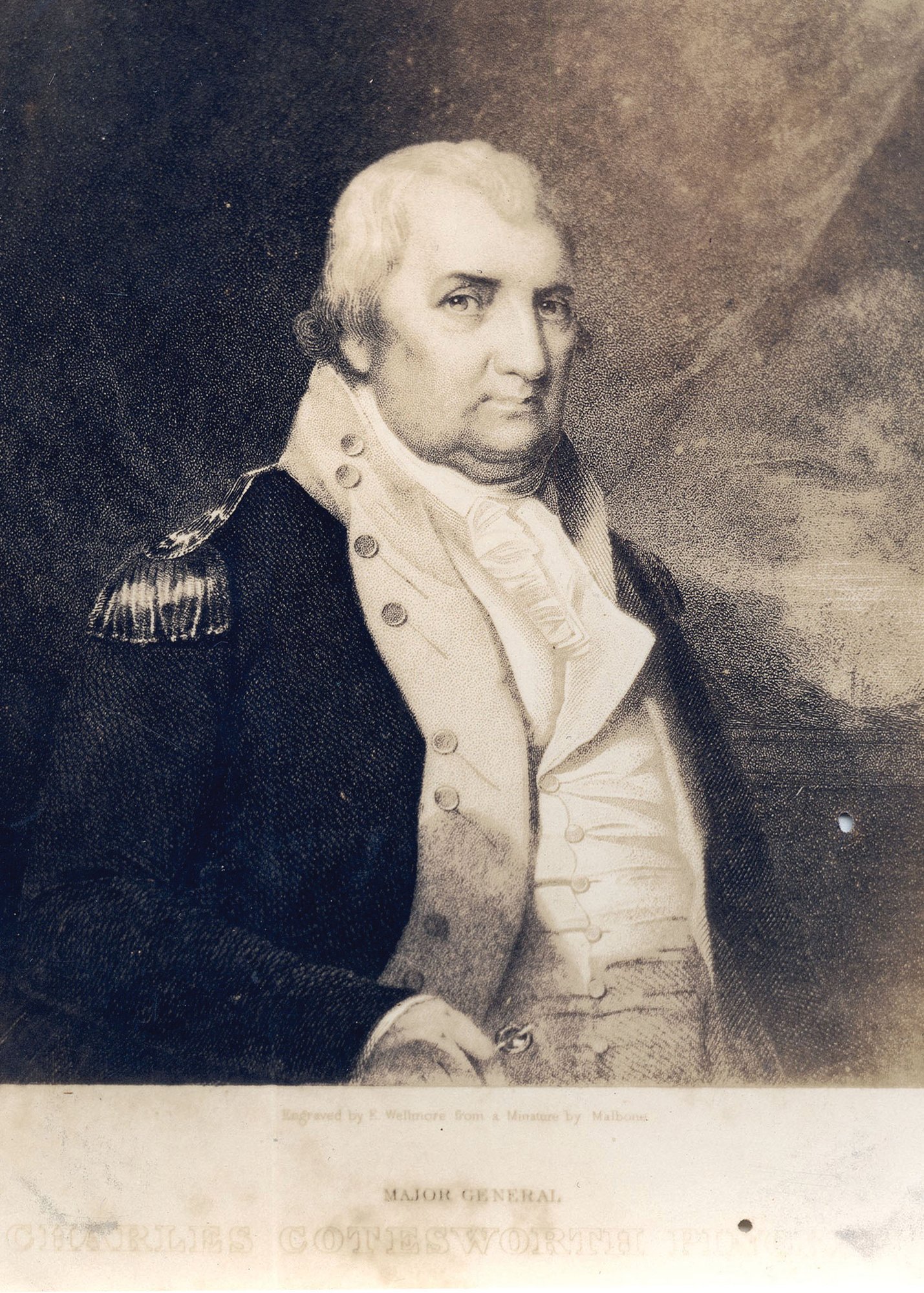This month in S.C. History: The XYZ Affair causes celebration in Charleston
On Feb. 8, 1799, a large celebration took place in Charleston upon the return of Charles Cotesworth Pinckney from France. Pinckney, the son of Charles and Eliza Lucas Pinckney, held several governmental offices in South Carolina and was a delegate to the Constitutional Convention. He then served as a major general in the U.S. Army and was appointed Minister to France in 1796. Once in Paris, he faced growing hostility. Disturbed by the Jay Treaty between the U.S. and Great Britain, France began to attack American merchant ships and demanded that Pinckney leave the country. President John Adams responded by sending two other diplomats, John Marshall and Elbridge Gerry, to assist Pinckney. The three men met with the French Minister of Foreign Relations Charles Maurice de Talleyrand-Perigord. At first, Talleyrand was polite, but he refused to negotiate in any official capacity. As the American diplomats were shuttled from one envoy to another, they were told that the French expected a payment, or bribe, if the United States wanted to improve relations. The story goes that, as the demand for payment intensified, Pinckney eventually shouted: "No! No! Not a sixpence!"
When American reporters described the negotiations, the names of the French envoys were replaced with the letters X,Y and Z, and the incident became known as the "X,Y, and Z Affair." The diplomats sailed home, where they were greeted by widespread applause and intense anti-French sentiment. Pinckney was concerned about returning to Charleston because the city was heavily pro-French before he left. He must have been relieved when, on Feb. 8, 1799, city leaders met him three miles outside of the city and escorted him to town. As they rode, trumpets, horns and cannon fire sounded a hero's welcome. He was then taken to a special theatrical performance with a new musical composition titled "General Pinckney's March." The evening culminated with a banquet given at city hall. At the end of the dining hall, a portrait of Pinckney hung over the words "il faut de l'argent; il faut beaucoup d'argent? - 'No, No! Not a sixpence.'" In front of city hall, another painting featured a woman with an American eagle. Over her head were the words "Millions for defense, not a cent for tribute."
The next year, Pinckney was the vice-presidential candidate for the Federalist Party, in hopes that he would draw Southern votes. However, both Pinckney and John Adams, the incumbent president, lost to the Democratic-Republicans and Thomas Jefferson became president. Pinckney was chosen by the Federalists as their presidential nominee in 1804 and again in 1808, but the Democratic-Republicans carried both elections.
More Articles to Read

